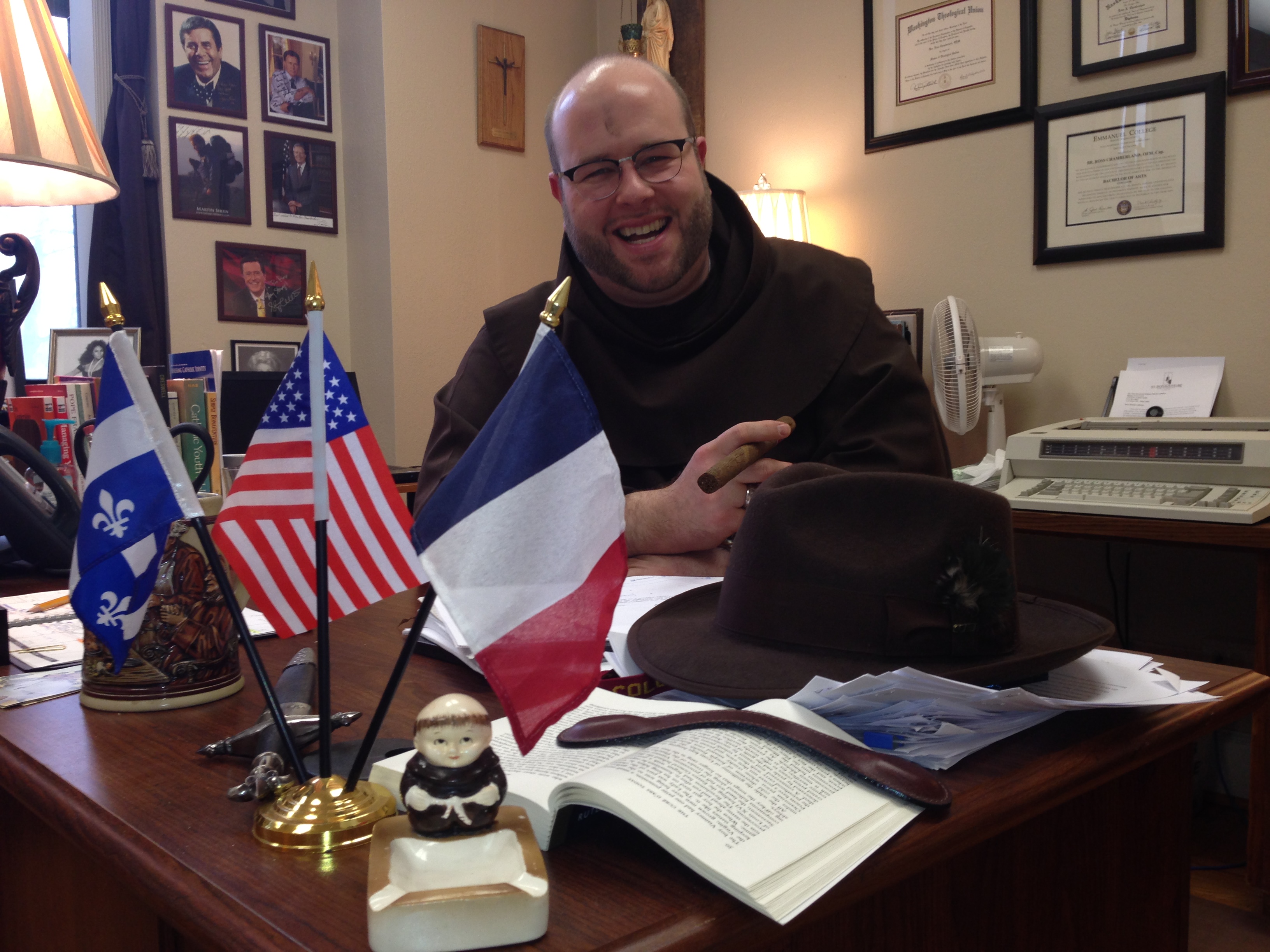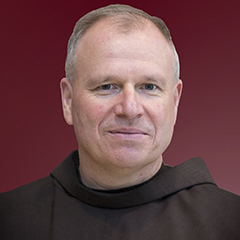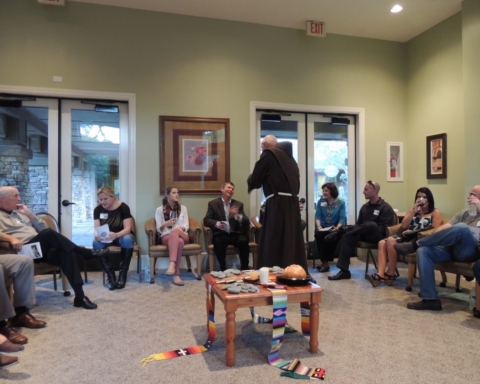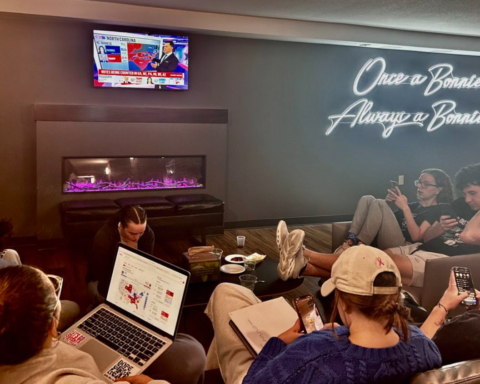By Hannah Gordon
Fr. Ross Chamberland, O.F.M., is no stranger to the religious life, but rural areas—well, that’s a different story.
Fr. Ross, professor and director of the Lateran Center for Catholic Identity, was raised in Nashua, New Hampshire—the second largest city in the state with a population of about 86 thousand. His childhood was speckled with religious figures—a presence he didn’t think out-of-the-ordinary until he grew up.
“I grew up across the street from a hospital and a church,” Fr. Ross, 35, said. “My grandmother was a cook in the rectory, and I always went to the children’s Mass.”
Fr. Ross’ parents were heavily involved in the church as well. His godfather was a priest, and his babysitters were habit-wearing nuns.
“I never had this vision of priests and nuns being any different from anyone else because because the ones I knew weren’t.,” Fr. Ross said. “I was just so engaged with the church and didn’t realize that wasn’t normal until, like, high school.”
That’s when he began to fade away from the church. But despite the near-constant Christian influence, Fr. Ross’ parents didn’t force him or his two siblings to make their Confirmation. Fr. Ross said he eventually missed the church community and got involved again after a self-described conversion experience.
“When I chose to do it, I was more into it,” he said. “I can’t be clear enough about how I was so fortunate to have the positive influence of the church in my life.
“I had this experience that was kind of like a St. Paul experience that was like ‘Hey you need to change some stuff. I woke up and I felt very different. I felt like God was absent from my life, and I wanted to change that. I didn’t know how, but I knew it was real because I had been carrying some grudges against people in my life that I was finally able to let go.”
That experience wasn’t the end for Fr. Ross though. He still didn’t know what to do next, so he reached out to the influencers from his childhood for guidance, and one of them told him she could see the Franciscan spirit in him.
He began to mingle with friars, and found that he really liked the culture.
“I saw that they were just regular guys trying to make a difference. That really resonated with me,” he said. “They were trying to do good stuff, and that’s what I wanted to do.”
And that’s what he has done. Fr. Ross has worked as a teacher in inner-city school districts in southern New Hampshire, Boston and Brooklyn—“like the stuff they make movies about.” One of those positions went through six employees in two years before Fr. Ross stepped into the role. He would teach during the day, coach football, basketball, street hockey after school and went to school at night, eventually earning a degree in social justice and urban life from Emmanuel College in Boston.
While in Boston, Fr. Ross started the Boston Catholic Youth Connection, ministering to troubled youth and gang members. The initiative involved 14 inner-city parishes, which aimed to involve and engage the youth of the community in an attempt to steer them in a productive, rewarding path.
Each night, Fr. Ross would walk the streets of the community beginning around 9 p.m. to get to know people. His goal was to become a familiar face—one people could trust and confide in. Those connections would help him diffuse potential violent situations in the future. As an on-the-street minister, Fr. Ross worked with police to decrease the gang activity in the community—which sometimes put him in precarious positions.
“Yeah, I was in danger quite a bit,” he said casually. “But, I thought, ‘What am I going to not do this because it’s dangerous?’”
After his days of street ministry, Fr. Ross spent three years teaching in a multicultural parish in Washington, D.C.—where he earned his masters in theological studies from Washington Theological Union and a pontifical graduate degree in sacred theology from The Catholic University of America. Then he came to St. Bonaventure as a friar intern.
“I moved here in the summer, and it was like a ghost town,” he said. “But once the year got going, it was normal. When you work college, if you’re involved in the life of the campus, it doesn’t really matter where it is.”
That being said, according to Fr. Ross, it does matter that it’s St. Bonaventure.
“One of the blessings I’ve come to realize about this place is that the rural reality around the campus truly fosters community development at the university. I’ve seen the alumni, and they are like fiercely loyal.”
Fr. Ross said he loves the campus and being out and about talking to the Bona community. If you’re trying to find him, though, you’ll have to look for a puff of smoke in the air from his cigar and a tipped brown trilby hat. That, in combination with the friar’s robes, Fr. Ross looks a bit like “The Godfriar”—or at least that’s what one student told him.
gordonhr13@bonaventure.edu









